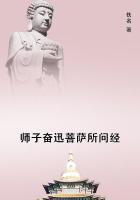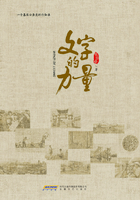Before the dire year of 1837, there are, then, to be found the beginnings of most of the elements of modern labor organizations --benevolent societies and militant orders; political activities and trades activities; amalgamations of local societies of the same trades and of all trades; attempts at national organization on the part of both the local trades' unions and of the local trade unions; a labor press to keep alive the interest of the workman; mass meetings, circulars, conventions, and appeals to arouse the interest of the public in the issues of the hour.The persistent demand of the workingmen was for a ten-hour day.
Harriet Martineau, who traveled extensively through the United States, remarked that all the strikes she heard of were on the question of hours, not wages.But there were nevertheless abundant strikes either to raise wages or to maintain them.There were, also, other fundamental questions in controversy which could not be settled by strikes, such as imprisonment for debt, lien and exemption and homestead laws, convict labor and slave labor, and universal education.Most of these issues have since that time been decided in favor of labor, and a new series of demands takes their place today.Yet as one reads the records of the early conspiracy cases or thumbs through the files of old periodicals, he learns that there is indeed nothing new under the sun and that, while perhaps the particular issues have changed, the general methods and the spirit of the contest remain the same.
The laborer believed then, as he does now, that his organization must be all-embracing.In those days also there were "scabs,"often called "rats" or "dung." Places under ban were systematically picketed, and warnings like the following were sent out: "We would caution all strangers and others who profess the art of horseshoeing, that if they go to work for any employer under the above prices, they must abide by the consequences."Usually the consequences were a fine imposed by the union, but sometimes they were more severe.Coercion by the union did not cease with the strike.Journeymen who were not members were pursued with assiduity and energy as soon as they entered a town and found work.The boycott was a method early used against prison labor.New York stonecutters agreed that they would not "either collectively or individually purchase any goods manufactured" by convicts and that they would not "countenance"any merchants who dealt in them; and employers who incurred the displeasure of organized labor were "nullified."The use of the militia during strikes presented the same difficulties then as now.During the general strike in Philadelphia in 1835 there was considerable rowdyism, and Michel Chevalier, a keen observer of American life, wrote that "the militia looks on; the sheriff stands with folded hands." Nor was there any difference in the attitude of the laboring man towards unfavorable court decisions.In the tailors' strike in New York in 1836, for instance, twenty-seven thousand sympathizers assembled with bands and banners to protest against the jury's verdict, and after sentence had been imposed upon the defendants, the lusty throng burned the judge in effigy.
Sabotage is a new word, but the practice itself is old.In 1835the striking cabinet-makers in New York smashed thousands of dollars' worth of chairs, tables, and sofas that had been imported from France, and the newspapers observed the significant fact that the destroyers boasted in a foreign language that only American-made furniture should be sold in America.Houses were burned in Philadelphia because the contractors erecting them refused to grant the wages that were demanded.Vengeance was sometimes sought against new machinery that displaced hand labor.
In June, 1835, a New York paper remarked that "it is well known that many of the most obstinate turn-outs among workingmen and many of the most violent and lawless proceedings have been excited for the purpose of destroying newly invented machinery."Such acts of wantonness, however, were few, even in those first tumultuous days of the thirties.Striking became in those days a sort of mania, and not a town that had a mill or shop was exempt.
Men struck for "grog or death," for "Liberty, Equality, and the Rights of Man," and even for the right to smoke their pipes at work.
Strike benefits, too, were known in this early period.Strikers in New York received assistance from Philadelphia, and Boston strikers were similarly aided by both New York and Philadelphia.
When the high cost of living threatened to deprive the wage-earner of half his income, bread riots occurred in the cities, and handbills circulated in New York bore the legend:
BREAD, MEAT, RENT, FUEL
THEIR PRICES MUST COME DOWN














